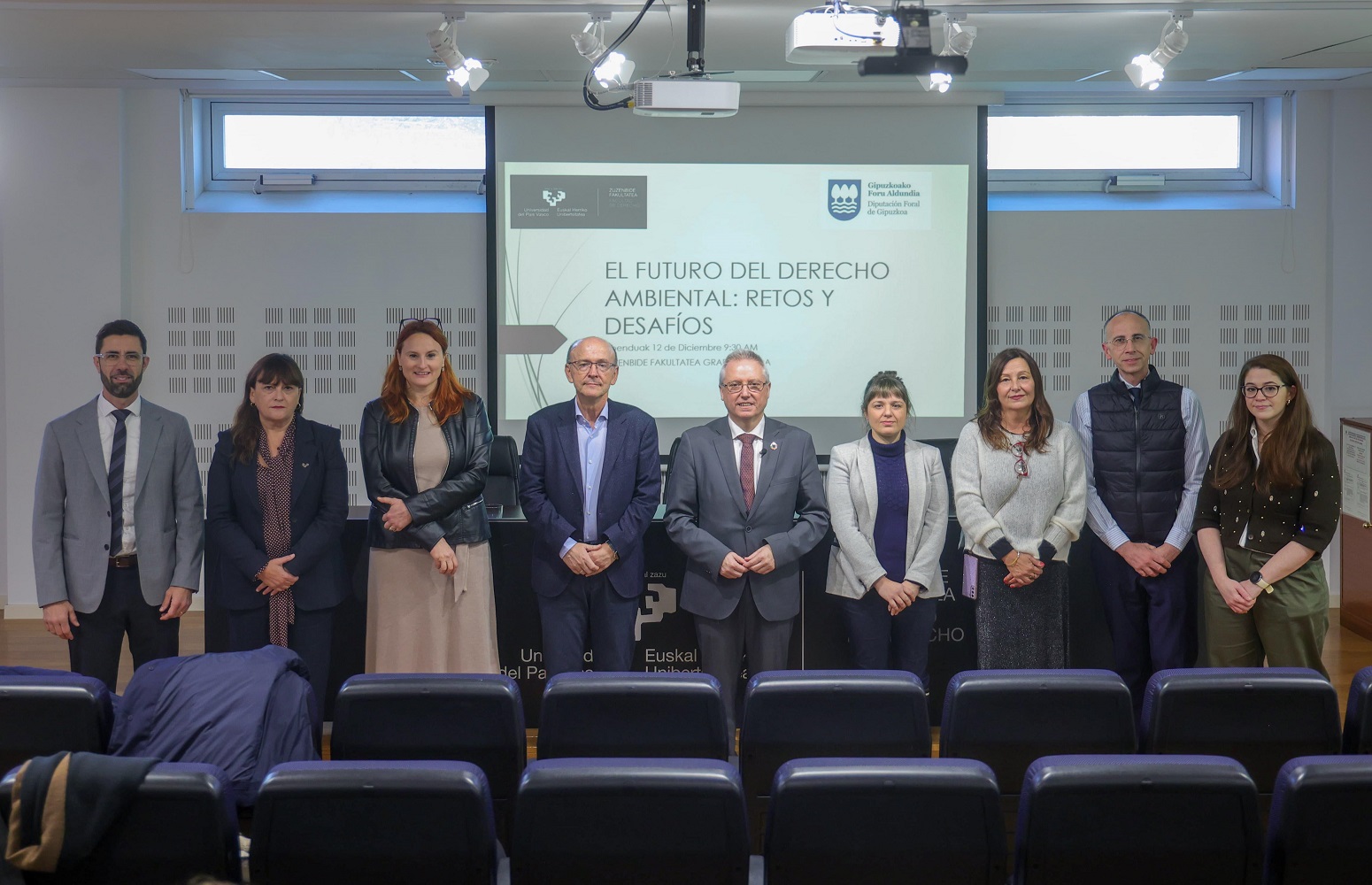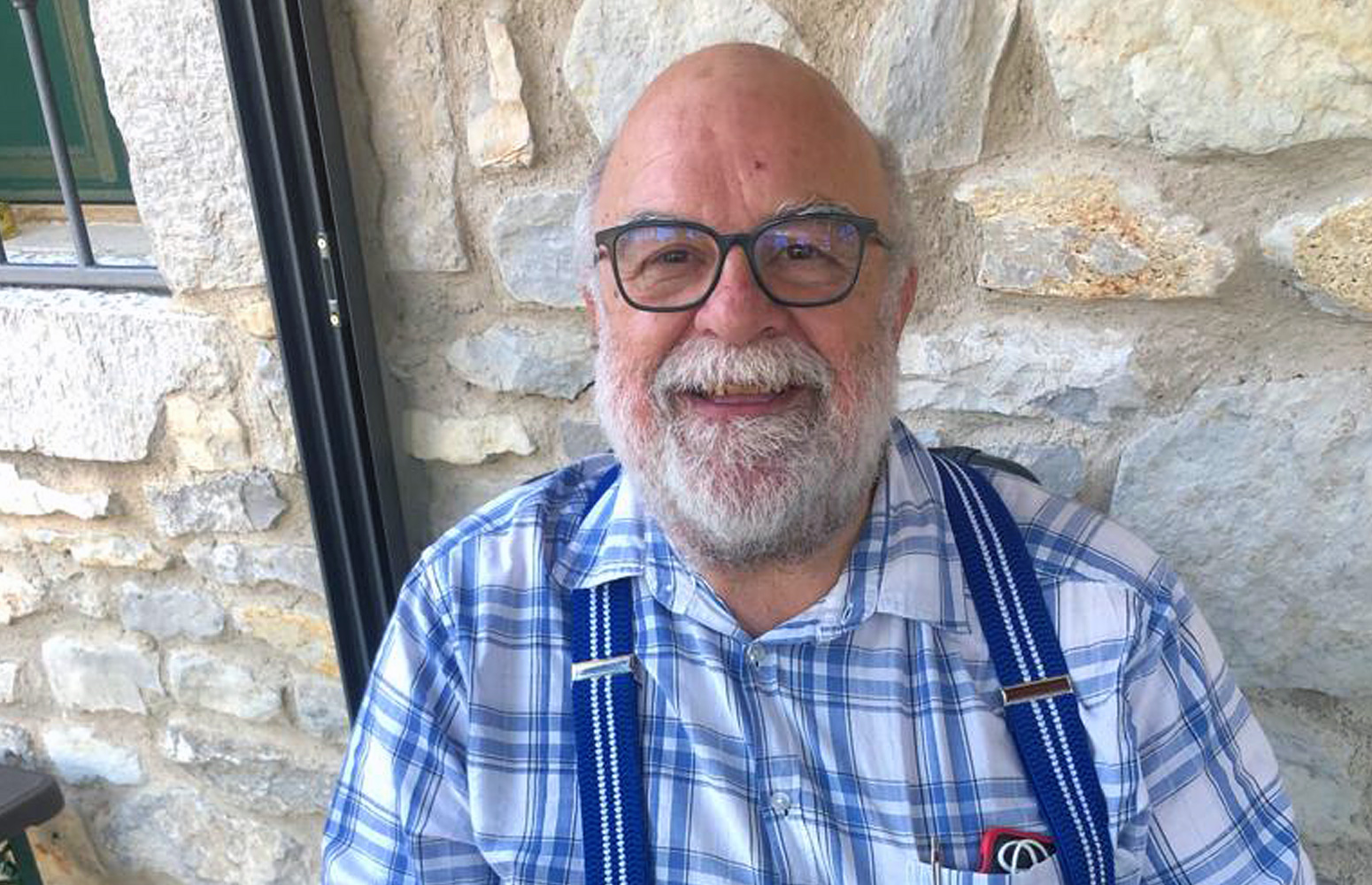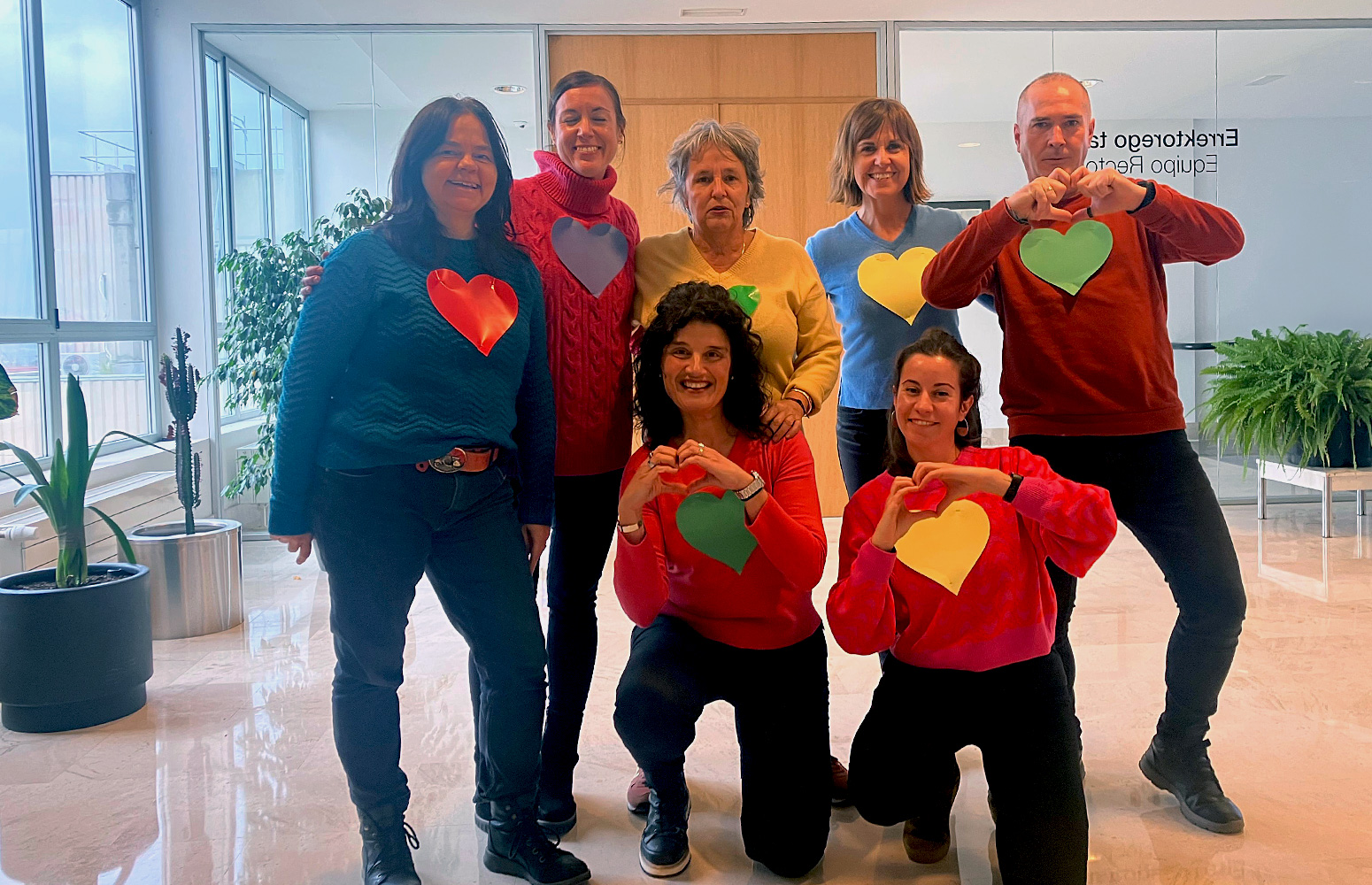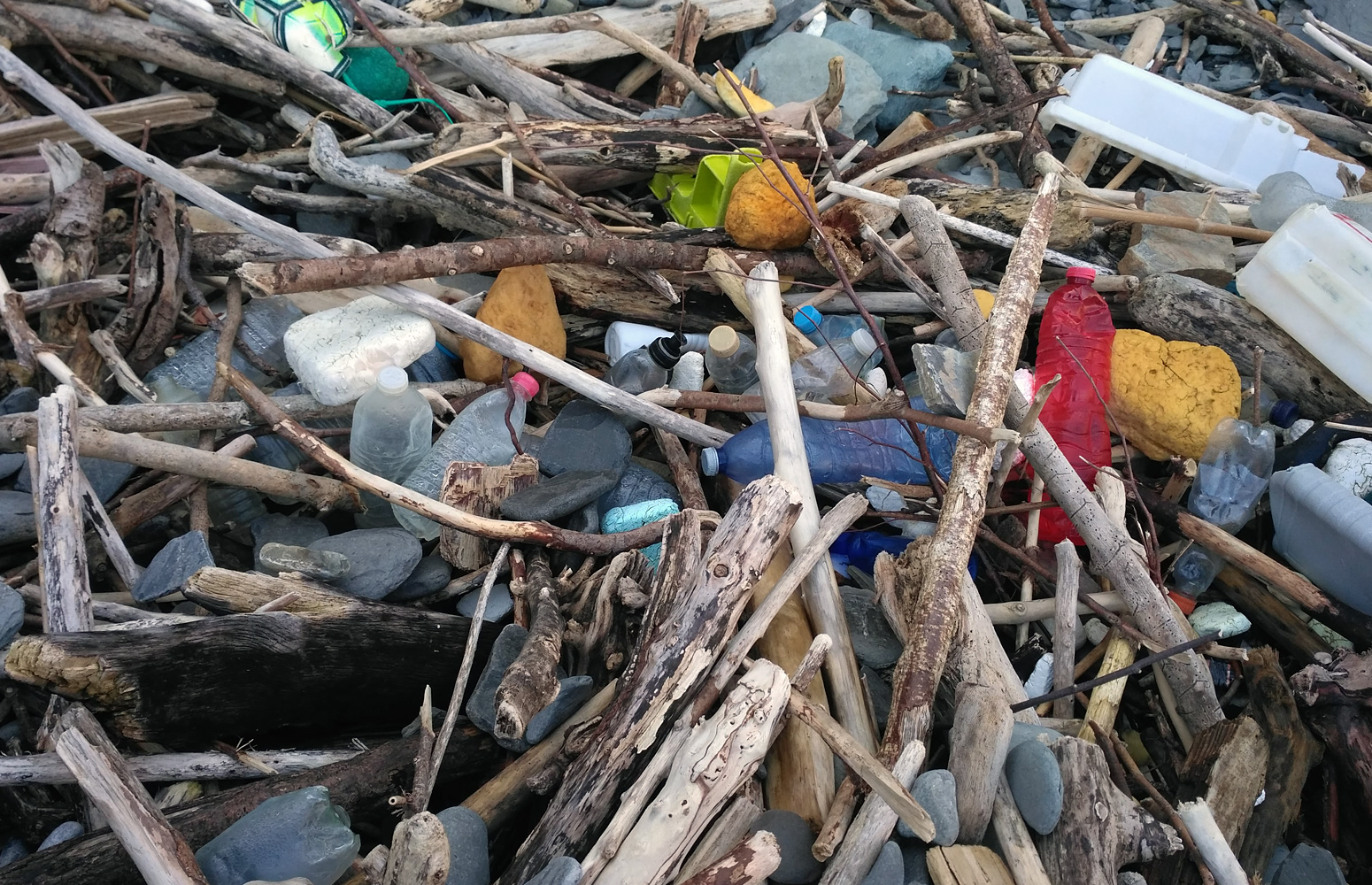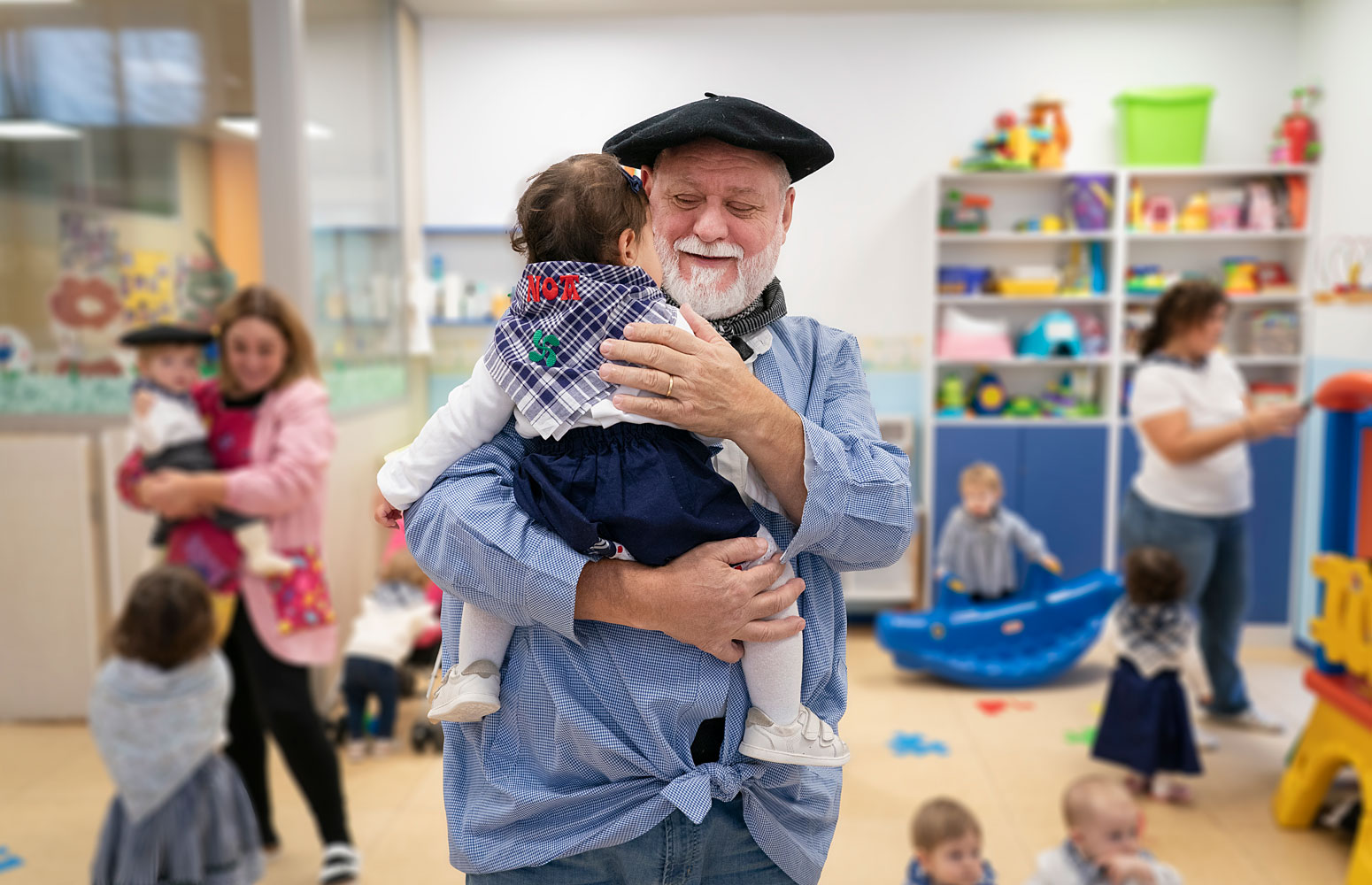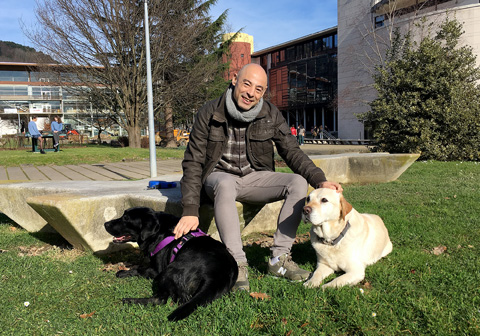A study into suicide prevention through animal-assisted psychotherapy receives funding from the Human Animal Bond Research Institute (HABRI)
This is the first time that a Spanish project has secured one of the grants that this U.S.-based organisation makes available every year for the study of human-animal interaction
- Research
First publication date: 26/02/2019
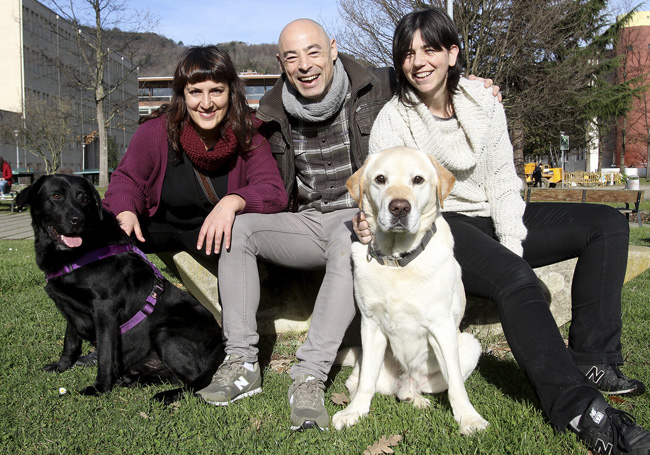
The Qualiker research group of the UPV/EHU-University of the Basque Country, which is led by the researcher Nekane Balluerka, has been awarded a grant by the Human Animal Bond Research Institute (HABRI), a non-profit research and education organization based in the U.S., to conduct the research project entitled ‘Design, implementation and evaluation of a programme to prevent suicide by means of animal-assisted psychotherapy for young people at risk’.
HABRI awards funding each year for research on the health benefits of human-animal interaction. Of the 40 projects received this year, HABRI has funded 5 of them, including the one submitted by the UPV/EHU, which has received funding to the tune of 60,060 dollars. The other four were submitted by the University of Sydney and the American Universities of Oregon, Texas and Vanderbilt, in Nashville.
The main aim of the UPV/EHU project is to design, implement and evaluate a suicide prevention programme using animal-assisted psychotherapy (AAP). “Various studies,” explained Alexander Muela, a member of the Qualiker research group at the UPV/EHU’s Faculty of Psychology, “have applied animal-assisted psychotherapy to young people with mental health problems. After AAP was applied, it was found to promote enhanced psychosocial adaptation and more resilient behaviour, as well as greater security with respect to attachment. It has also been found to reduce symptoms of depression, somatization disorder and sense of powerlessness. So bearing in mind that AAP lowers the risk factors of suicide (depressive symptoms) and increases certain protection factors (security with respect to attachment, adaptive skills), it may turn out to be a potentially useful intervention in preventing suicide in young people displaying problems of psychosocial adaptation”.
The PhD thesis of Laura Oliva-Trastoy, who has enrolled on the UPV/EHU’s Psychology PhD Programme, will be developed within the framework of this project.
“Suicide among young people,” added Alexander Muela, “is a global, public health problem. It is a practice that takes place in all societies across the world and affects both sexes. According to WHO data, suicide is the second cause of death in the 15 to 29 age group worldwide and the third cause of death in Spain, exceeded only by external causes of death and tumours. By 2020, suicide is expected to account for approximately 2.4% of the total burden of health problems. It is also worth pointing out that government statistics do not record suicide attempts, so it is more than likely that these figures are underestimated. In this respect, in the 15 to 24 age group there are estimated to be between 100 and 200 suicide attempts for every completed suicide.”
In the view of the UPV/EHU researcher, suicide in the young population is a complex phenomenon with multiple causes. “Mental health problems are among the main risk factors associated with suicide among young people. In Europe and North America the combination of alcohol and drug consumption and the displaying of anxiety and depression disorders are considered to be the main risk factor associated with suicide, while in Asian countries it is impulsive behaviour that better predicts suicidal thoughts and behaviour. At the same time it is worth pointing out that having carried out previous suicide attempts, displaying personality disorders and suffering post-traumatic stress disorder as a result of having been the victim of ill-treatment in childhood have been associated with suicidal behaviour. So it is necessary to activate specific intervention programmes to prevent the risk of suicide in young people who are at risk”, concluded Muela.
- Members of the Qualiker Research Group (“A” group within the Basque university system):
- Nekane Balluerka
- Arantxa Gorostiaga
- Jone Aliri
- Aitor Aritzeta
- Goretti Soroa
- Alexander Muela
- PhD student in the research project:
- Laura Oliva-Trastoy



